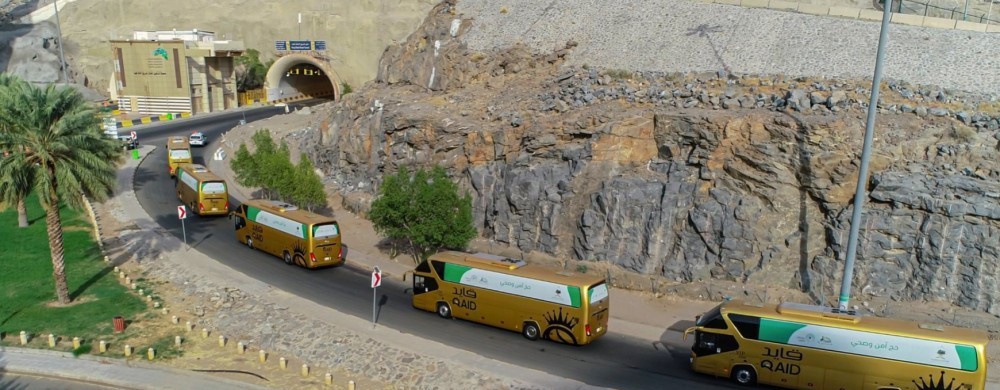Intelligent transportation systems in Hajj and Umrah system
(Future vision)
The Hajj and Umrah system is one of the largest human gatherings in the world, as Muslims flock from all over the world to perform this religious ritual. With the increasing number of pilgrims and Umrah performers, improving and managing transportation has become an urgent necessity. The use of intelligent transportation systems in these rituals is an important step towards improving the experience of pilgrims and Umrah performers, and ensuring the efficiency and safety of transportation during this sensitive period.


Intelligent transportation systems are defined as systems that use information and communication technologies to improve the safety, efficiency and effectiveness of transportation. Intelligent transportation systems rely on a variety of technologies, such as positioning systems, telecommunications and data processing.
Intelligent Transportation Systems Applications
Intelligent transportation systems are used in a variety of applications, such as:
Traffic management: Intelligent transportation systems are used to collect and analyze traffic data, helping to improve traffic flow and prevent congestion.
Road safety: Intelligent transportation systems are used to monitor traffic and alert drivers about potential hazards, such as accidents and congestion.
Public transportation: Intelligent transportation systems are used to provide information about public services, such as arrival times and locations.
Sustainable transportation: Intelligent transportation systems are used to promote sustainable transportation, such as walking and cycling.
Benefits of Intelligent Transportation Systems
Intelligent transportation systems have many potential benefits, including:
Improving safety: Intelligent transportation systems can help prevent accidents and injuries by providing information to drivers and enhancing traffic awareness.
Improve efficiency: Intelligent transportation systems can help improve traffic flow and reduce travel time.
Promoting sustainability: Intelligent transportation systems can help promote sustainable transportation, such as walking and cycling.
Challenges of Intelligent Transportation Systems
Intelligent transportation systems also face some challenges, including:
Cost: Intelligent transportation systems can be expensive to develop and operate.
Technology: Intelligent transportation systems require the use of the latest technology, which can be complex and expensive.
Legislation: Intelligent transportation systems may require changes in legislation or regulations.
The Future of Intelligent Transportation Systems
Intelligent transportation systems have great potential to improve transportation. By using information and communication technologies, intelligent transportation systems can help make transportation safer, more efficient and more sustainable.
Future outlook for intelligent transportation systems
In the future, intelligent transportation systems are expected to become more widespread and sophisticated. Intelligent transportation systems are likely to be integrated with each other and traditional transportation systems, which will further improve transportation efficiency. Intelligent transportation systems are also expected to become safer and more sustainable, as they will be used to promote sustainable transportation and prevent accidents.
Some future predictions for intelligent transportation systems
Reliance on artificial intelligence: Intelligent transportation systems are expected to increasingly rely on artificial intelligence to analyze data and make decisions. This will improve the accuracy and efficiency of intelligent transportation systems.
Integration with other technologies: Intelligent transportation systems are expected to integrate with other technologies, such as augmented reality and virtual reality. This will lead to more interactive and immersive transportation experiences.
Expansion of sustainable transportation applications: Smart transportation applications are expected to expand to include more sustainable transportation technologies, such as walking and cycling. This will make transportation more sustainable and environmentally friendly.
Of course, whether these future predictions come true depends on many factors, such as technological developments and government regulations. However, intelligent transportation systems have the potential to bring about significant positive change in transportation.